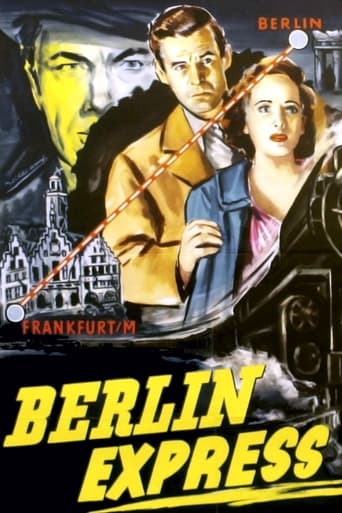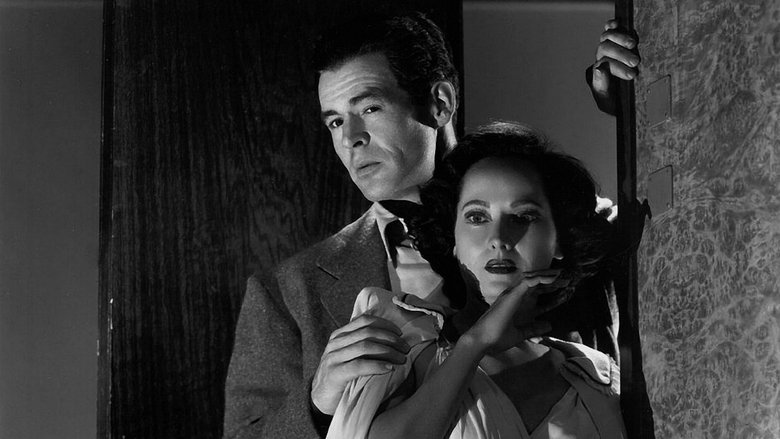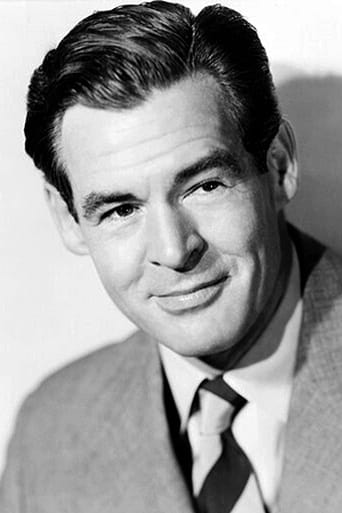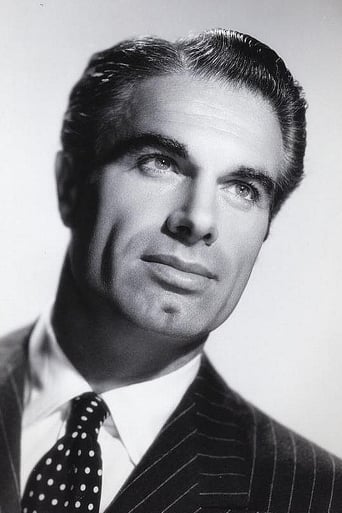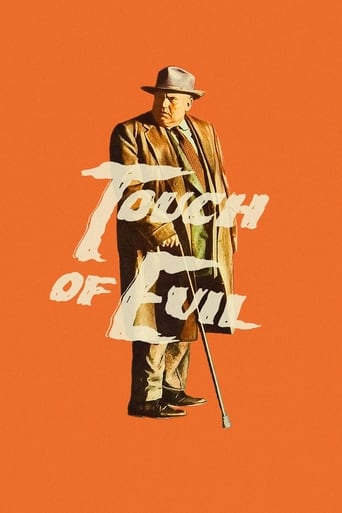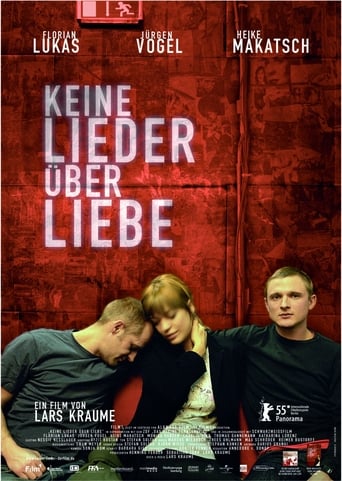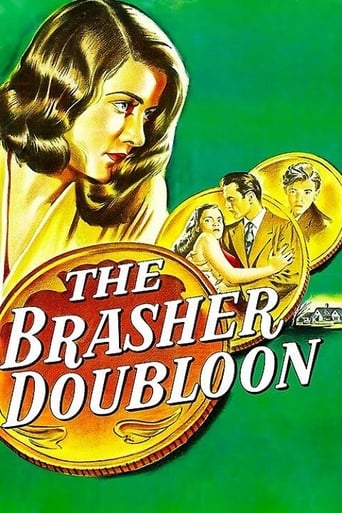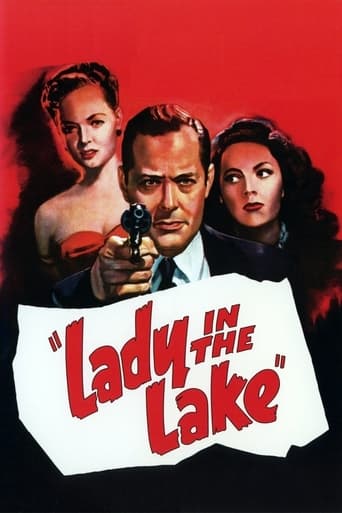Berlin Express (1948)
Robert Ryan leads a group of Allied agents fighting an underground Nazi group in post-war Europe.
Watch Trailer
Free Trial Channels
Cast


Similar titles
Reviews
Perfectly adorable
Nice effects though.
It’s not bad or unwatchable but despite the amplitude of the spectacle, the end result is underwhelming.
Excellent and certainly provocative... If nothing else, the film is a real conversation starter.
The opening script for "Berlin Express" gives one an idea of what to expect in this movie. "Actual scenes in Frankfurt and Berlin were photographed by authorization of The United States Army of Occupation, The British Army of Occupation, The Soviet Army of Occupation." The film is based on a story by Curt Siodmak, a German writer, director and producer. He fled Germany after Hitler came to power. and wound up in Hollywood in 1937. Most of the action takes place aboard the The Main Seiner, an American Army express train that ran from Paris to Berlin, with a stop at Frankfurt. The film narrator says that the Berlin Express "is a sort of traveling Grand Hotel for soldiers on leave and on orders, for War Department clerks and wartime wives, displaced persons, diplomats." Other people also seem to be able to travel on the express, judging by those in this film.Otto Franzen (Paul Lukas) was a German industrialist, now a dealer in scrap metal. Henri Perrot (Charles Korvin) had been a member of the French underground and is now in commerce. James Sterling (Robert Coote) is a British war veteran and Allied teacher for re-education in German schools. Lt. Maxim Koroshilov (Roman Toporow) is a Russian soldier on orders. Lucienne Mierbeau (Merle Oberon) is a multi- linguist and secretary. Hans Schmidt (Peter von Zerneck) is a German civilian who speaks English and whose occupation is drowned out by the train whistle. Robert Lindley (Robert Ryan) is an American agriculturalist working to rebuild Germany's food and nutrition programs. A mystery traveler is soon understood to be Heinrich Bernhardt (Fritz Kortner), but we know he is a decoy. He was Otto Franzen and Paul Lukas was the real Bernhardt.These are the people who make up the main cast of the film. Others take part later in Berlin. All of the cast are superb. The cinematography is outstanding. The technical work and production qualities are excellent.This is the first Hollywood movie made in war-torn Germany after the May 1945 end of World War II in Europe. It shows the almost total destruction of the cities of Frankfurt and Berlin. So, this film has considerable historical value. As bleak and terrible as the destruction appears – three years after the war, the film doesn't show the human toll. One can get a sense of it from the stark landscapes and scenes devoid of all but a few people. Then, the contrast with the scene of the busy open-air market amidst the rubble. That's a place, the narrator says, where one can sell and buy anything "from diapers to diamonds.""Berlin Express" was made as a mystery-thriller, but there's a great deal more to it than that. It is foremost a bleak picture of the widespread destruction of Germany. People of the 21st century may view this as a horror of war, and rightfully so. Those who watched the film when it came out would have been more aware of the insanity of it. Not because of any hateful or spiteful vengeance on the part of the Allies for needless bombing. But, because of the refusal of Germany to surrender with a lunatic at its helm. So, this film stands not just as an example of the horrors of war, but of the insanity of the war perpetrator who then refuses to surrender in the face of defeat and instead invites his own destruction. This film also has a clear propaganda theme. It's hope is that the Allies will be able to work together and help eventually to rebuild the devastated Germany. It does this with some light humor and jousting between the men on the train from different countries. And, the film touches one more topic – post-war Nazism. It has an existing Nazi underground that reminds viewers that Nazism itself is not dead. Indeed, the neo-Nazi beast was to rear its head soon in countries around the globe. Three things about the film are puzzling. The first is the shooting of a pigeon in the opening scene. Who would be shooting pigeons with so many people around the Eiffel Tower? And why didn't the shooter pick up the pigeon? I'll give a pass to the pigeon having the message for the suspense, but it wasn't necessary to the plot. The second strange thing was on the train. One of the men who escorts the decoy Dr. Bernhardt asks Schmidt for a light as he leaves the train. He passes a message to him. It's the same message found on the pigeon: 21:45, D, 9850, Sulzbach. Schmidt was the undercover bodyguard for Dr. Bernhardt, as we learn later. Was that just an Allied relay to him about the message? The only way it makes sense is that Schmidt then got the American military guys to switch the decoy's compartment. Then, the only person who would know where to kill Dr. Bernhardt (the fake one), would be someone on the train who saw the changes. We all find out later who that was.The third strange thing seems to be a hole in the plot. After the train stops at Sulzbach, Lindley and others find that some compartments have been changed. His first compartment, A, is now occupied by Lucienne who had been in B. Lindley doubles up with Perrot in E. They find D unoccupied – where the decoy Bernhardt had been, and the Army captain said it was to stay that way. So, Bernhardt must now be in B. But as the train resumes travel and the decoy Bernhardt comes down the corridor, he enters the now vacated compartment D and closes the door. The explosion goes off and kills him. Why didn't he go into his new compartment B? It seems like a plot hole and scripting or directing error.
With the second world war ending, already Germans envisioned a united country. A man of peace, Paul Lukas, travels back for a peace conference with this idea in mind. Trouble is that there is an absolute lunatic fringe who doesn't want this to occur and instead see a divided Germany as cause for discontent and eventual renewal of war against the allies.The usually benign Charles Korvin has a completely different role here. As Lukas's faithful secretary, Merle Oberon is anything but dominant in this 1948 film. The Russian officer in the film is stereotyped as being suspicious of anything western.The best part of the film is the ending where we see hope for friendship and understanding among the nations.
A very average film noir only made interesting as a piece of social history in its location filming around Berlin and Frankfurt. The documentary style voice over used a lot at the beginning of the filim I found irritating and the script and Miss Oberon's performance were poor. The rest of the leading players are average apart from the ever reliable Robert Coote playing his English toff. The images filmed in Germany were sobering to say the least. The portrayal of the distrust in Germans in 1948 and the scale of devastation of Berlin and Frankfurt compared to now was very quite shocking. My father was in Germany just after the war and was guarded when talking about his time there but was visibly upset when he talked about how tough it was just to exist in Germany at that time.
This is a Strange One. The Film Exists in that Short-Lived Netherland between the End of WWII and the Solidification of the Cold War and the USSR as our Eternal Enemy (at least for Decades). There is an Attempt to try and Pose this Thriller in the Bombed-Out Remains of Germany and it is Very Effective in its use of Real On Location Footage.It can be a Heavy Handed Affair at times with its Didactic Narration and Muddled Script. The Movie is Forever Stylistic in the way the Director Frames the Intrigue and it is a Visual Treat most of the Time. But where the Movie Fails is its Ability to make Very Clear what is going on most of the Time and there are Events that seem Glossed Over and Rushed. The Whole Effort Works more than it Doesn't and as Entertainment it is just Fine. Add to that the Informative Cityscape that says much without Words and can be a Breathtaking Experience. This was most Likely the First Glimpse of the Devastation and Destruction that was allowed into the General Public Consciousness. They must have Thought that Three Years After was Long Enough.

